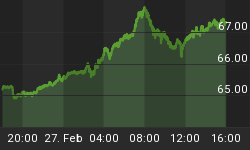In the last months we have observed the financial markets development with great scepticism. To us markets have become too exuberant over "green shoots" which in the end may prove to reflect nothing more than a flattening out of the steep economic contraction. Inventory restocking, one-time stimuli leading to economic activity (such as a car wreck programs), and other bailout and support measures do not create sustainable growth in the context of all remaining unresolved issue of the credit bubble and its implications. Our concern is that this gap between financial markets and real economies may grow until to the point of bursting.
IMAGINE...
• that the recent - psychology and Green Shoots based - stock market rallies having started in March of 2009 become self-feeding and continue due to a lack of other investment opportunities
• that cautious "professional" investors (institutional investors, fund managers) and short investors feel they are missing the boat and must go long unless they are willing to face a career risk
• that by now even the most cautious private investors return back into stocks since they do not want to miss out on this great bull, maybe even reaching a mode of panic
• that indeed, a bottom of the economic slowdown is in sight and the end of the recession is declared - with "growth" re-established but on pre-year levels that are far below "normal".
• that central bankers and governments are content with the effects of their stimuli while not feeling comfortable, yet, to withdraw their support
• that an uncritical media fosters the belief that the recent hurricane is safely behind us
• that investors live on hope without accepting that the levelling out of the economic chute may be temporary, only, which does not mean a quick recovery to previous levels
... WHILE...
• write-off potentials in the financial systems keep on building since economic growth is not strong enough to avoid another wave of debt defaults
• bond markets come under growing pressures due to the exploding financing volumes while having to compete with the money flowing into the stock markets
• it turns out that in the "post-recession" period the large banks were able to make money only based on bailout support received and due to changes in accounting principles while smaller banks not benefiting from these measures continue to fail in growing numbers
• financial markets having reached by now such levels (stocks) and strains (bonds) that no orderly "corrections" are possible any longer
• central banks and regulators now, albeit too late again, wake up to what they have created trying now to earnestly control the markets - while not having any longer sufficient fiscal or monetary instruments left to react to this new and even larger crisis
THEN....
- the financial system tightens up again. Stock, futures and foreign exchange markets are temporarily interrupted and thereafter heavily regulated
- governments lose fiscal control and the last remaining credibility as institutions
- already weak real economies slip to the next lower recession level
- unemployment accelerates, pension funds fail, social unrests and political backlashes become commonplace.
... AND...
→ stock markets drop to new lows adding to the downward pressures on real economies
→ trust in money and central banks is lost. Paper money standards may be reviewed with gold, other hard assets and renewed barter trading becoming options instead
→ commodity and energy prices fall due to much lower demand while food prices rise markedly. Global trade volumes shrink more, protectionism rises, resources are nationalized or heavily taxed as a way to secure additional income for governments
→ governments provoke hyperinflation, while cutting down social entitlement programs, etc.
... HOW TO INVEST
IF such scenario is indeed in the making, then trading inclined investors could attempt to "ride the bubble" while seeking solutions for the time after the bubble burst. Conservative investors should remain on the sidelines and adapt to changing risks and new opportunities as they are recognized. The challenge, especially for the trading investor, will be the correct timing.
Cottonfield as an asset manager for Swiss domestic and international clients evaluates investment opportunities today for tomorrow.















